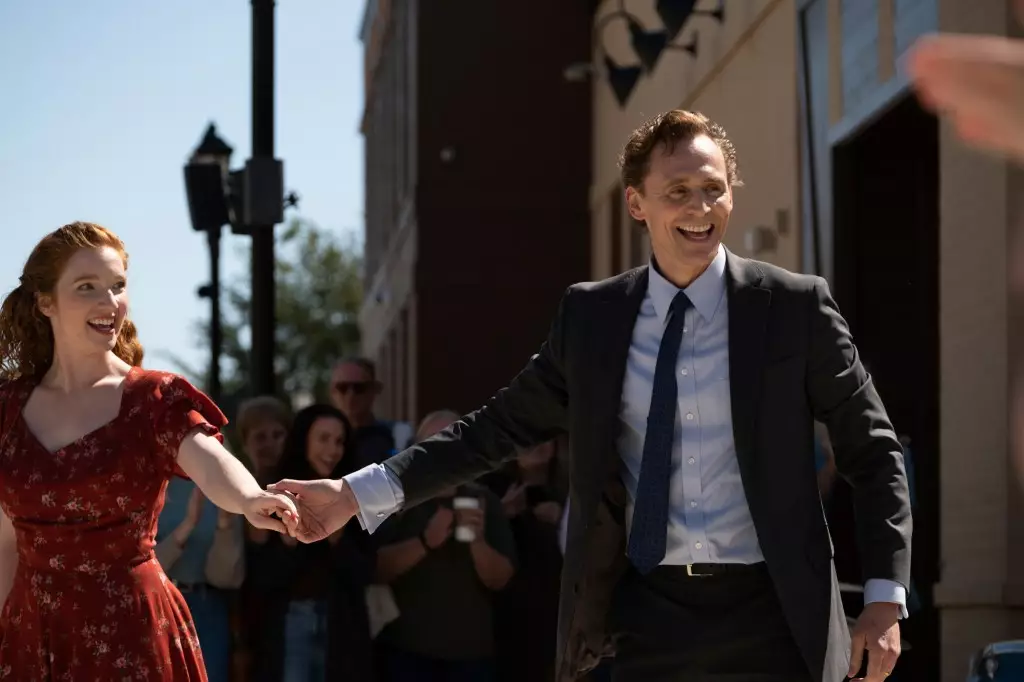Hollywood’s recent box office triumphs seem to signal a resounding victory for the age-old blockbuster model. Yet, behind these gleaming numbers lies a quiet discontent—a yearning for authentic storytelling that doesn’t rely solely on nostalgia, spectacle, or franchise loyalty. The resurgence of brands like Jurassic Park and Superman proves that recognizable IP still sells, but it also exposes an unsettling sameness creeping into Hollywood’s DNA. The industry’s obsession with reboots and sequels threatens to drown out genuine innovation, turning cinema into a predictable parade of pre-sold commodities rather than a vibrant medium for discovery.
While these megahits fill seats, they often do so at the expense of the creative spark that once defined Hollywood’s golden era. What has been lost is an appetite for surprise—films that emerge from the chaos of development, fueled by risk and originality. Audiences are increasingly bombarded with movies that feel like variants on a tired theme, revealing a complacency that stifles true innovation and leaves little room for the unexpected. With each recycled story about Earth’s destruction or superhero’s resurrection, the industry risks cultivating a cycle where familiarity replaces creativity, ultimately dulling the very magic it seeks to maintain.
The Mythology of Summer Blockbusters and the Echo Chamber of Reinvention
In the early days of Hollywood, summer releases were marked as unpredictable ventures—carefully crafted experiments that could surprise even their creators. Films like *American Graffiti*, *Dog Day Afternoon*, and *Stand By Me* carried the thrill of discovery; they arrived unannounced, often from directors who dared to take artistic risks outside studio mandates. The mystique was rooted in their unpredictability, in the fact that no one was quite sure what these movies would become. Meanwhile, classics like *The Godfather* and *Jaws* arrived amidst murky production stories, yet their successes proved that authenticity and storytelling mastery could overshadow Hollywood’s obsession with safe bets.
Today, that sense of mystery is waning. Studios chase after box office records by replicating proven formulas—fans now anticipate the formulaic hits, diminishing their potential for genuine surprise. The frantic race to produce similar movies like *Deep Impact* and *Armageddon* demonstrates a troubling tendency: instead of fostering originality, Hollywood doubles down on repetitive franchises. This cycle breeds fatigue among audiences and dilutes the power of cinema to be a platform for cultural reflection, artistic expression, or provocative storytelling.
The Critical Valley of Independent Cinema and the Chance for Reinvention
Amidst the blockbuster cacophony, independent films and smaller productions have quietly attempted to reclaim what Hollywood has forsaken: authenticity and emotional depth. These productions often carry no brand weight and rely on storytelling ingenuity rather than spectacle to captivate audiences. One recent example that exemplifies this trend is *The Life of Chuck*—a film based on Stephen King’s short stories, directed by the daring Mike Flanagan. It’s a narrative not designed for mass spectacle or franchise loyalty but for those willing to embrace storytelling that defies traditional structure.
*Chuck* doesn’t boast big-name stars or eye-popping visuals; instead, it offers a layered experience, told non-linearly, challenging viewers to piece together its cosmic and mundane elements. Yet, despite its modest presentation, it provokes genuine discussion and emotional engagement. When audiences leave such films, their questions reveal an appetite for movies that dare to be different—films that don’t merely serve as vehicles for franchise marketing but stand as unique artistic statements.
The distribution of *Chuck* underscores a critical point: if Hollywood remains fixated on blockbuster formulas, the door for meaningful, unexpected cinema to reach wider audiences remains narrowly cracked. Festival circuits, niche platforms, and daring distributors have become vital incubators for this new wave of authentic storytelling. Their success suggests that audiences are hungry for more than just familiar brands—they desire honest, heartfelt, and surprising narratives.
The Future of Cinema: Challenging the Dominance of Familiarity
The trajectory of Hollywood’s filmmaking indicates an uneasy complacency—an industry content with rehashing the past rather than forging new paths. But the true vitality of cinema lies in its capacity for reinvention. The question is whether Hollywood’s giants will recognize that the audience’s desire for authentic stories surpasses their fixation on safe, pre-packaged hits. Will they dare to invest in projects driven by originality and risk, or will the industry drift into a relentless cycle of sameness?
The growth of independent and non-branded films suggests an alternative model—one rooted in genuine storytelling rather than franchise exploitation. Yet, the challenge remains: how does a small, inventive film like *Chuck* reach mainstream audiences when the system favors familiarity? Paramount and Warner Bros. have their franchises; the real test is whether creative filmmakers, distributors, and studios are willing to take chances and nurture projects that dare to surprise.
If Hollywood continues to prioritize the safe and profitable over the innovative and unforeseen, it risks stagnation. Genuine cinematic magic—those moments that surprise, challenge, and move audiences—must be prioritized if the art form is to evolve beyond mere spectacle. Because at the heart of cinema’s best moments is a simple truth: audiences crave authenticity and unpredictability, not just the comfort of familiarity.
